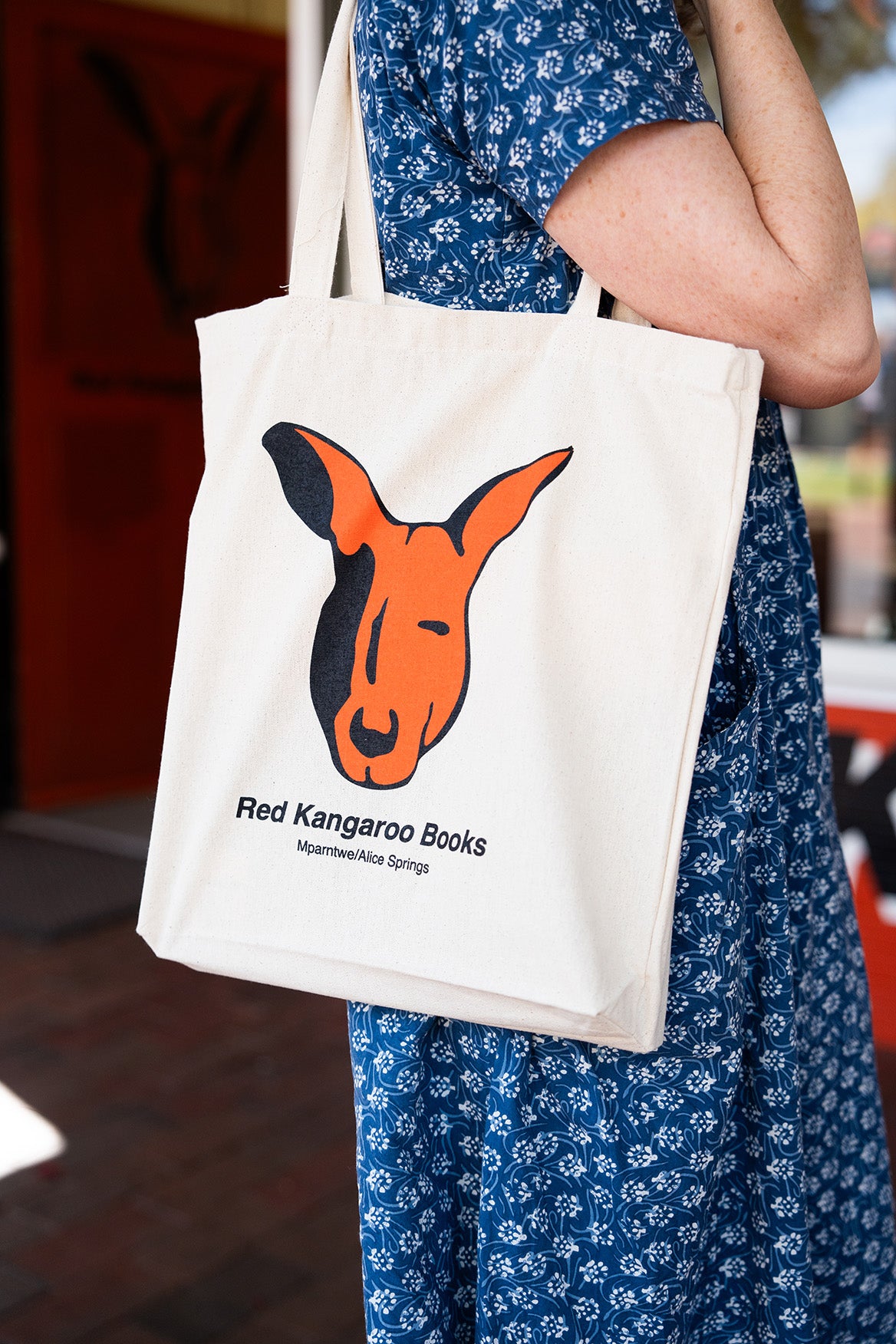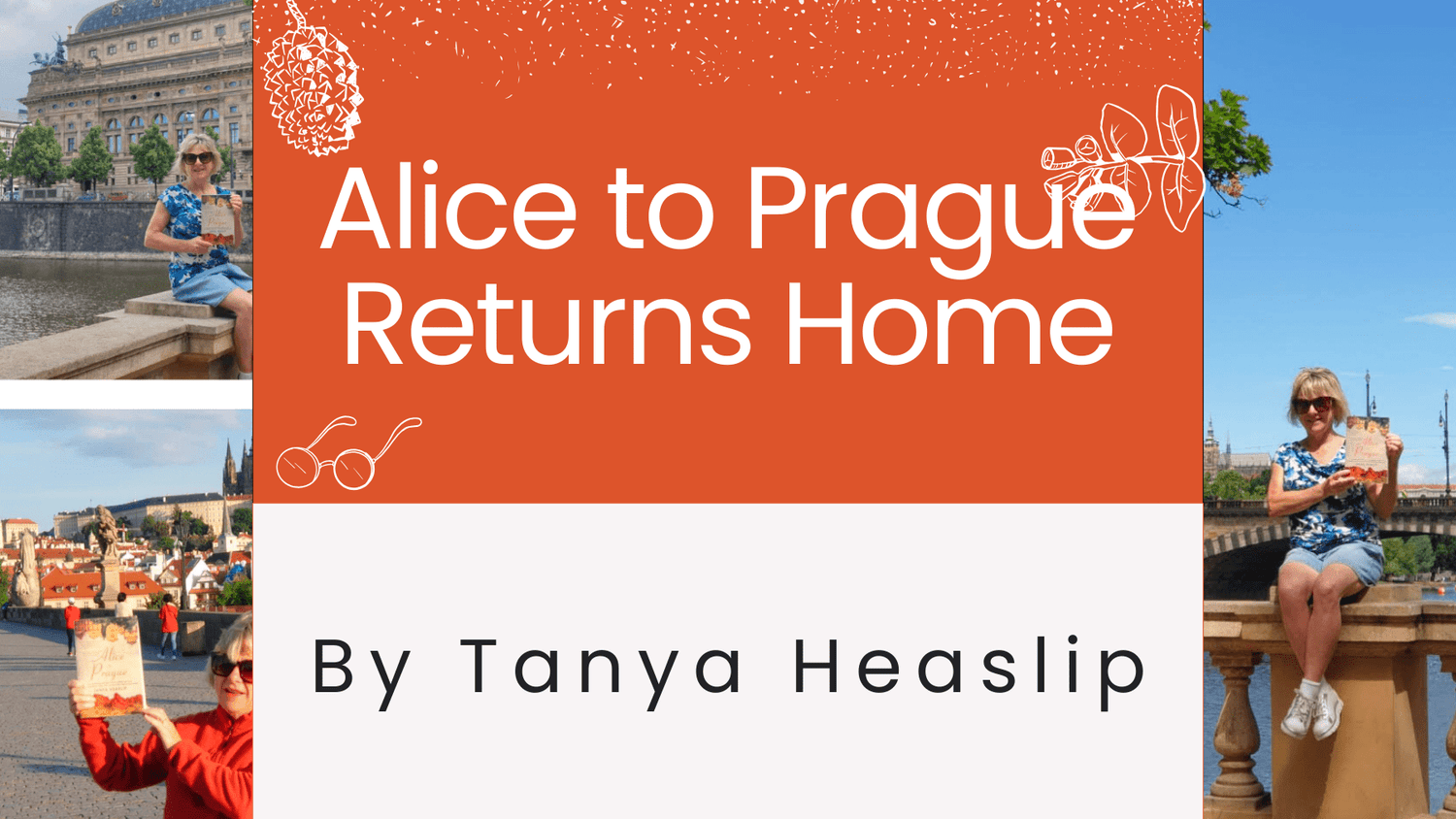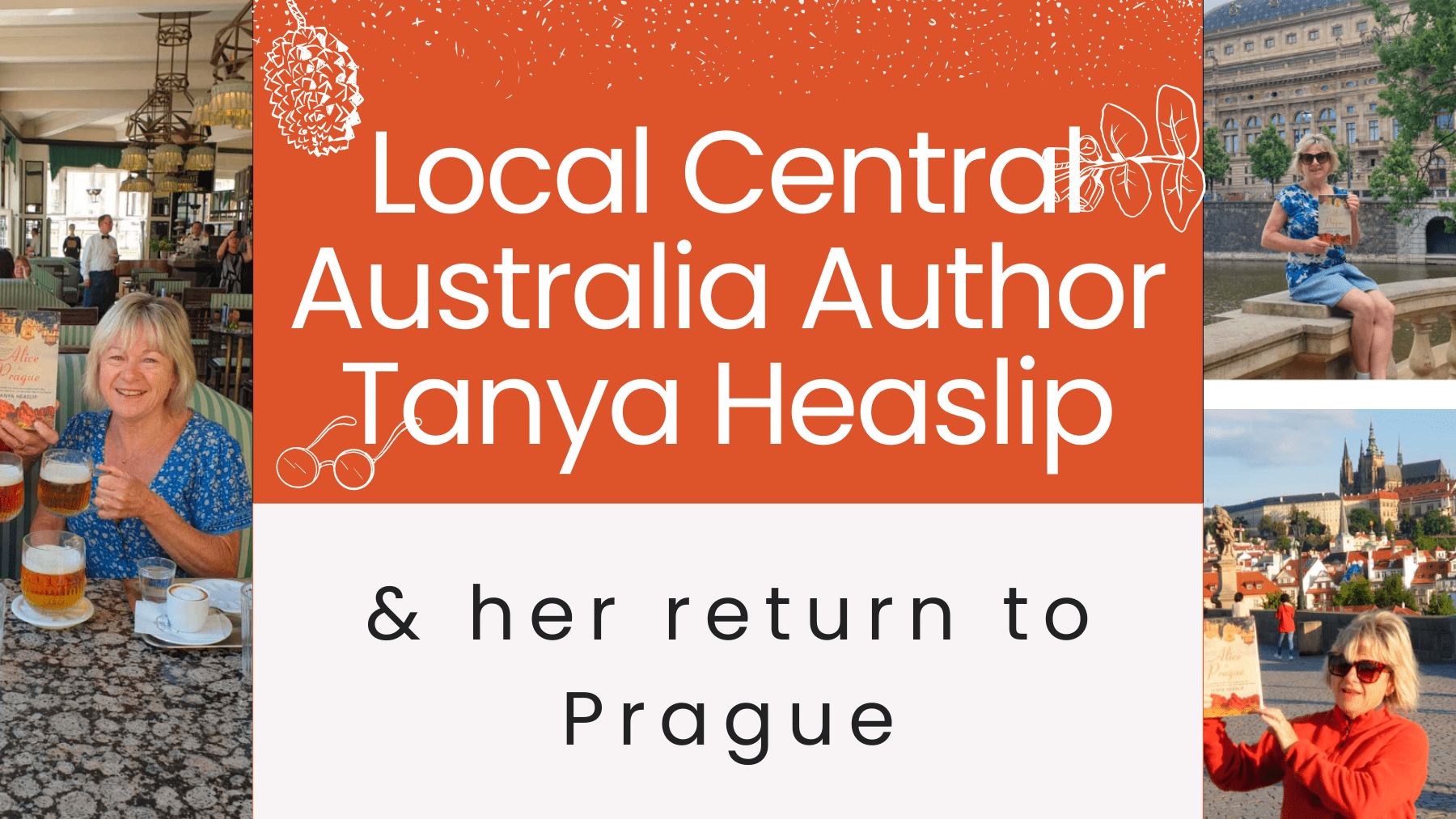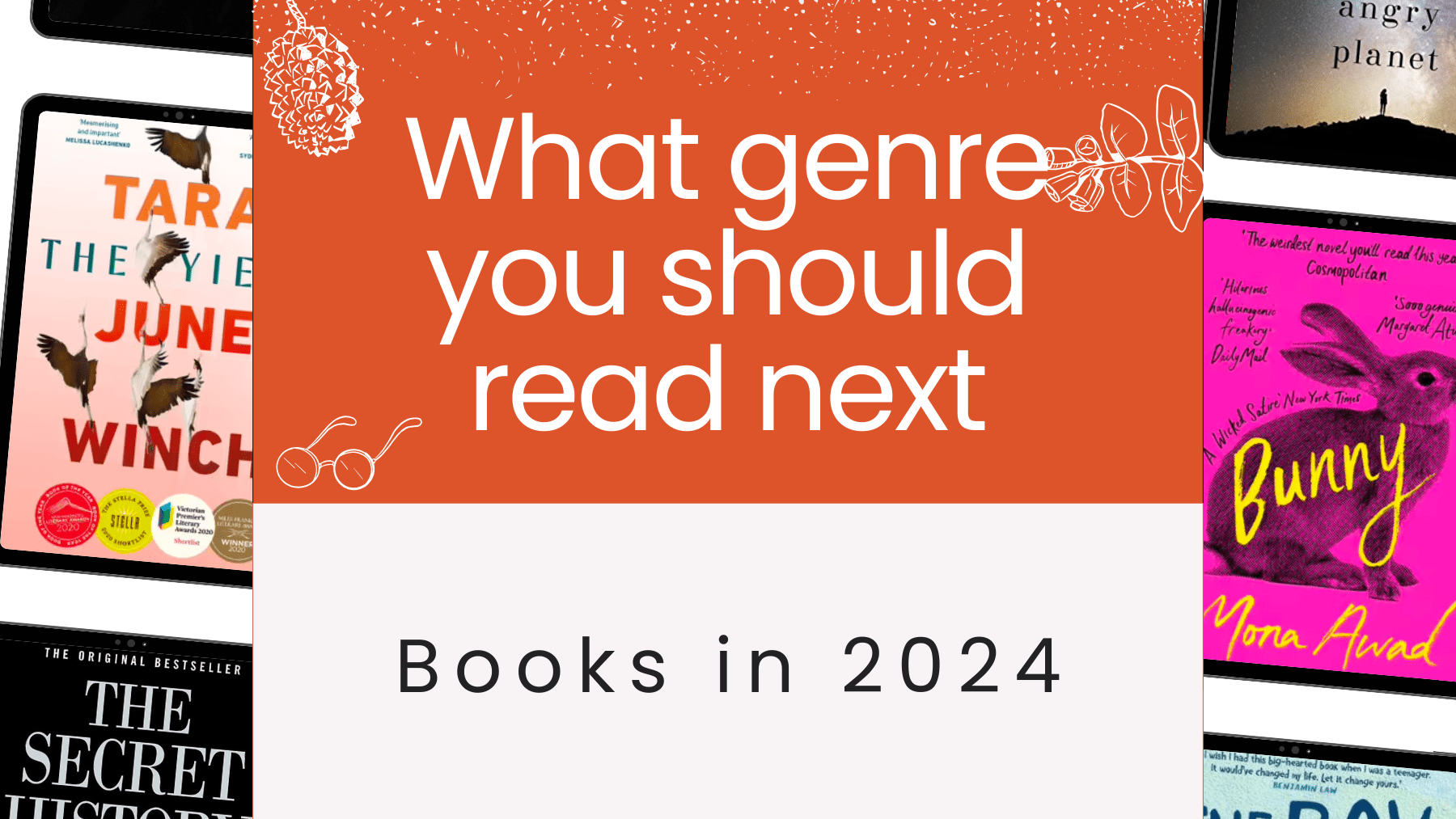All my life I dreamed of travelling to Europe.
My School of the Air teacher would read us Heidi and the Secret Seven aloud through the crackly static of the two-way radio. Her words transported me a different world, one I could barely image: snow capped mountains, green meadows covered in buttercups, thatched roofed cottages, wide blue lakes, and children having adventures in rocky caves overlooking Smuggler Island.
For a young isolated girl growing up in the middle of the red, raw outback, that ‘overseas’ world seemed impossibly exciting, exotic. Surreal, even.
I painted pictures in my mind as to what it all looked like and longed to see it with my own eyes.
Then in high school I studied Modern European history and read the poetry of Wilfred Owen. Dad lectured us constantly about the world wars. He quoted Churchill, saying that those who do not learn from history are doomed to repeat it. Europe took on a deeper meaning for me, a darker meaning. I read about the centuries of bloodshed, grief and loss across the many nations there.
But snippets of my childhood imaginings persisted amongst those terrible stories: the ancient castles, oak woods, and wildly courageous people. These were lands of poetry and legends and myths, of deeply entrenched cultures. I was hungrier than ever to explore these places of contradictions.
It took many years before my chance came. First, I had to go to law school and then work to earn enough money. But finally I made it to Europe in 1989, backpack and Eurail Pass in hand. I was a late bloomer, heading off on my own at age twenty-eight. The resistance around me had been stiff. What about the corporate ladder? You’ll never get back on, my legal colleagues had cried. But I was off, with the wind in my hair, wanting to know first hand what it was all about.
For twelve months, I explored every Western European country except for Finland (there, I simply ran out of time). Daily, I scribbled in my diary, trying to make sense of my adventures. Yes, I found some beautiful places, but I also felt loneliness such as I had never felt in the outback. Hardest of all was that I struggled to reconnect with my childhood dreams. Perhaps twenty eight was just too old to revive them? Perhaps my colleagues had been right.
But a week before I was due to return to Australia, a miracle occurred. The Berlin Wall fell. Decades of Cold War oppression collapsed under the people’s cry for human rights and political freedom. Nobody ever thought such a thing would be possible. Yet people power ultimately defied despots and evil. It was incredible to believe that I was there, in Berlin – the epicentre of so much pain and suffering for so many decades – under a leaden sky, boots in the icy snow, and an Eastern European guard hacking off a piece of Wall for me. My worlds collided. Clutching that piece of Wall firmly in hand, I returned home, determined to find a way to return.
I wanted to see what was over the other side of that Wall!
It took four more years of hard work in law back in Australia to save up to return to Europe. Then, through another series of miracles, in 1994 I made it to Prague. Communism had also collapsed in Czechoslovakia (which by then had become the Czech Republic and the Slovak Republic) and ‘native English speakers’ were being welcomed in to help the Czechs transition towards their so-called freedom. Dvořák had alluded to a New World in his composition masterpiece centuries before, and I was lucky enough to be part of that new world unfolding as I arrived to teach English.
Prague, the capital, was a fairytale city. A hidden jewel. It had been tucked away from the world for decades and miraculously untouched by the wars. According to legend was originally created by Princess Libuse who proclaimed ‘I see a city of stars.’ In Prague I found a seamless blend of glorious Czech music, culture, architecture, passion, and literature. My childhood dreams and romantic soul had found their home at last.
An intense love affair with the city and the country followed, not to mention a blue-eyed Czech man who played guitar and quoted poetry under the stars. Those loves kept me there for two and a half years, instead of the three months I’d originally gone for. But eventually, I also knew I had to leave and return to my own ‘real world.’
Back home I grieved, for years, until I found solace in writing my stories and memories down in what would become Alice to Prague. That was a fifteen year labour of love.
Finally, the day arrived that Alice to Prague was published – May 2019.
I longed to take my book back to where the stories and memories had begun. But my 2020 plans to launch my book in Prague were scuppered by Covid
So it wasn’t until June 2023 – nearly 30 years from my first visit – that I took Alice to Prague home. When I finally arrived, book clutched in hand as tightly as the piece of Wall had been all those years ago, I feared what might await me. Would Prague still be the place of my beloved memories?
Dad always said it was never good to go back. To anything. For the first couple of days, riven with jetlag and disorientation, my first instinct was he was right. Prague in 2023 was so different to Prague 1994. And I was lost.
No longer a hidden jewel, Prague had become a busy international city, influenced by the West, initially a shock to my eyes and memories. While I had returned intermittently throughout those 30 years, now I saw changes writ large.
In retrospect, it was hardly surprising. Transition during the ‘90s had been a tough time for the Czechs. After decades of control and occupation, they’d been left on their own to create their own new world. They’d been determined to make up for lost time, join the EU, embed human rights into their laws, and bring the country into the modern age.
And that’s exactly what they did. And that’s what I found in June 2023.
English is now spoken everywhere. There are even English translations in the Metro. Navigating my way around Prague’s communist created public transport had been one of the hardest challenges I’d had to face in ‘94, and now it is easy! To be fair, trying to understand timetables back then, written in a language based on Latin, with six extra letters in the alphabet, and virtually no words that resembled English – except for sex and police – was one of my biggest challenges. Not to mention trying to understand or read anything at all.
But the real miracle of travel is that while some things come and go, somethings remain ever present. The pastel coloured houses of the Old Town Square, statue lined pedestrian Charles Bridge and the Castle remain ‘chocolate box’ beautiful. They stand untouched by the impact of time. The Old Town Square was first built in the 11th century, the bridge and castle in the 14th century. It is still a city of spires – hundreds of spires. Gazing upwards, running my fingers along ancient walls, walking on cobblestones and taking time to soak in the city’s beauty, I was finally transported back to where it all began.
And most wonderful of all were old friends, with whom I had amazing reunions. My former teenage students who were now grown-up. Friends my own age who’d moved away but flew in for our reunion. And friends who’d been older than me back in ’94 were older still, yet bursting as ever with Czech humour, their love of beer (‘best in the world,’ they still boast, and I believe them) and their love for their ‘nature’. They are proud Czechs. Rightly so.
Ahh – that nature. Those beautiful lakes and the woods and valleys and meadows, buttercup filled, filled and lifted my heart. Czechs spend as much time as they can out in the nature, hiking and swimming and tending little gardens in their country cottages. And I’m part of it, again, as though I’ve never left.
Even in the city, the Czechs’ reverence for nature is ever present. Take Stromovka. Strom means tree. And Stromovka is an enormous park in the city simply dedicated to beautiful old trees. During the dark years of communism and decades of occupation, the glorious Czech landscape filled people’s souls and nourished them and kept them going. Wandering through the park, they filled mine again, as they had done back in ‘94.
And wondrously, my language came back during our trip – well, not completely, but far more than I’d expected. During my time in the ‘90s, I had tried so hard to learn it, and it was a thrill to find that my five senses leapt to life and returned phrases and words, almost effortlessly. Joy, joy, joy.
Arm in arm with old friends, I wandered down memory lane. Peeking around hidden walls, cobbled courtyards and winding lanes, my old Prague was still there. Hidden from the tourist gaze. Enigmatic. Enchanting. Kafka said ‘Prague has claws. She does not let you go.’
And best of all, my beloved husband Steve came with me, supporting me all the way, and loving Prague as I did, even starting to learn Czech by Duo Lingo!
On our last day in Czecho, we absorbed a glorious Alphonse Mucha exhibition (think Sarah Bernhardt, Moet Chandon) in a jewel encrusted hall, listening to the strains of nationalistic composers Smetena and Dvorak accompany the exhibition. In the next door theatre, the Prague Symphony Orchestra was in full rehearsal mode, violins and trumpets raising the rafters. Across the cobbled laneway the Prague Ballet were likewise rehearsing for Swan Lake’s evening concert. Music, culture, theatre, beauty everywhere. Kafka was right. Prague’s claws will never let me go.
Alice to Prague had returned home and so had I. It was a rich, deeply humbling experience, befitting of that old Czech magic. I feel incredibly fortunate to have us experienced a pocket of my life in this amazing country and have been able to record it in Alice to Prague.
So many unexpected benefits have also arisen since the book’s publication. Readers have written to me saying, ‘We want to go to Prague now, having read your book.’ That is usually followed up with, ‘Do you have any recommendations for us? Where should we go? What should we see?”
Do I ever have recommendations!
Even more humbling and special are the messages like this: ‘My parents escaped communism and came to Australia as refugees. After reading your book, I finally understand them a little better, and what they went through. Now I want to go and find their homelands for myself.’
So the next step for me? Maybe a small, select Walking Tour of Prague!
Kafka was right. Of course.
Tanya Heaslip's Books
An Alice Girl is Tanya Heaslip's extraordinary story of growing up in the late 1960s and early 70s on a vast and isolated outback cattle property just north of Alice Springs. In a childhood that many would consider very tough, Tanya tells of this precious time with raw honesty, humour, love and kindness.
From the happiness and freedom of her bush childhood, Tanya Heaslip is sent to a boarding school sixteen hundred kilometres away from everything and everyone she loves. As these years pass surrounded by the friends she makes, Tanya's memoir is a humorous and inspiring story of strength, resilience and the realities of Australian outback life.




